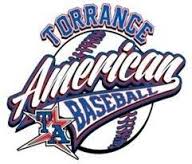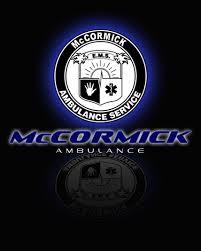“Not Good Enough,” Is that What TABB Aims to Teach Our Kids?
Not good enough. Those are painful words for any parent or child to hear. In the case of my son Beckett, they are even more poignant. That’s because they are words I’ve come accustomed to hearing him say. You see Beckett is technically not my son. He came to our family from a broken home on the cusp of his 5th birthday. He was born addicted to drugs and by all accounts had spent the vast majority of his first few years watching TV or playing video games. I won’t go into all the details but suffice to say he was in a sorry state. At 75 lbs he had already entered childhood obesity. He was so large that he loudly snored at night. He couldn’t ride a tricycle, let alone a bike. He couldn’t even climb the steps to the slide at the park, put on his pants, or wipe his bottom. Asking him to do slightly more complicated tasks like putting on a shirt or holding a pencil and writing something was like asking him to climb Mt. Everest.
He was neglected for most of his life and his mantra had become, “I’m not good enough.” Each time my wife and I tried to get him to try new things he would literally cry and those were the words we would hear. “I can’t. I’m not good.”
I was hesitant to put him in sports at first as I was worried about putting him in that competitive environment, but we gave Taekwondo a shot. The first few sessions he literally sat in the back and cried in my arms while his sister practiced. I’m not good at Taekwondo he would tell me. Once he gained the courage to try, however, he soon came to love it. After 6 months, he had lost almost 30 pounds and I put him in T-ball despite his objections. Later, he didn’t want to play soccer, because he was no good he said – but I signed him up anyway. We got the same story with basketball. “I can’t, I’m no good”.
Here’s the thing with Beckett, just like Taekwondo he can do it and he ends up enjoying it and doing fine once he gains the courage to try. He loves soccer and basketball now and in my estimation is quite good. You should see him on the field. He’s a totally different kid than he was two years ago. But that’s not why I keep pushing sports on him. At 7 years old, he has already overcome a drug addiction and obesity. That’s more than a lot of people can say in a lifetime, but that doesn’t mean he won’t have tough challenges ahead. I want him to have something like sports as an outlet. Something that will give him confidence, help him form friendships, and keep him active and away from the TV and video games he so craves.
That’s why I signed him up for little league this year and bought him a brand new bat and a bucket of balls to hit with for Christmas. We had been focusing more on soccer and basketball and I was looking forward to getting him involved with Little League.
 With that backdrop, we headed for TABB tryouts. Beckett had never tried out for anything before. He was intimidated and I could see him giving up before he even started. The ball sailed over his head. The grounders went right past him and he barely even swung at the few pitches thrown his way. It didn’t help that he was also pretty sick. He had missed school the day before with a fever and ended up not playing in a basketball game he had later that day when the fever came back that afternoon. I wouldn’t have taken him to the tryouts at all, but TABB seemed pretty serious about not missing it. I knew he could do better than he did as I’ve pitched to him many times, but I was proud of him for getting out there even when he wasn’t feeling good. What’s the big deal I thought? It’s just a try-out for 1st grade Little League. Who really cares how well he does?
With that backdrop, we headed for TABB tryouts. Beckett had never tried out for anything before. He was intimidated and I could see him giving up before he even started. The ball sailed over his head. The grounders went right past him and he barely even swung at the few pitches thrown his way. It didn’t help that he was also pretty sick. He had missed school the day before with a fever and ended up not playing in a basketball game he had later that day when the fever came back that afternoon. I wouldn’t have taken him to the tryouts at all, but TABB seemed pretty serious about not missing it. I knew he could do better than he did as I’ve pitched to him many times, but I was proud of him for getting out there even when he wasn’t feeling good. What’s the big deal I thought? It’s just a try-out for 1st grade Little League. Who really cares how well he does?
Well it turned out to be a much bigger deal than I thought and some people did care, a lot. I thought the try-out was just for the coaches to get a sense for his skill level so they could draft accordingly. Little did I know they were also determining whether he was even good enough for the league. A few days later I got a call from TABB telling me Beckett couldn’t play with the other 7 year olds and that if he was going to play TABB he had to play with 5 year-olds in the younger non-competitive league. Astounded, I plead Beckett’s case to the league President and explained to him that a decision like this would only reinforce the idea I’ve been trying to shake in Beckett’s mind that he is no good. It’s not so much I worry that he will think he is “no good” at baseball, I’m much more concerned about him thinking that he is “no good” as a person. Sports were meant to help him change that viewpoint about himself, not reinforce it. I thought for sure once I explained the situation to the TABB president that they would understand and allow Beckett to play with his friends and peers that he plays soccer and basketball with. Unbelievably, I was wrong.
I received the final ruling from the TABB league President yesterday. According to TABB, Beckett is not good enough to play 1st grade Little League. He was not even given a chance to be re-evaluated. They threw him a few grounders, tossed him a few pitches and labeled him “not good enough.” So it goes in TABB. I’ve been involved with youth sports nearly all my life and up until now I’ve never heard of a league doing something like that to a 1st grader.
They phrased it to me as a safety issue even though I told them I would be more than willing to have Beckett play outfield the entire season if safety was really the concern. This decision was made despite language in the TABB Rules of Operation indicating that a parent must agree to a decision to move a player down to a lower league.
As a parent, what am I to make of this? How do you explain to a kid like Beckett that he’s not allowed to play in the same division as his friends from school and from his soccer and basketball teams? I am heartbroken for him. I can only presume that TABB is more about the coaches and parents forming playoff contending teams than it is about the kids. Even at the 1st grade level, it appears it’s more about winning than having fun and learning a sport. If that is the case, then I find that very sad.
Beckett wasn’t born to me, but he has become my son. He’s a great kid and my best bud. That last thing I want for him is for someone to tell him he’s not good enough. That said, I didn’t write this so people can feel sorry for him or us. My hope is that if you believe what TABB did is wrong, as I do, then you will write to the TABB Board found here and tell them so. Maybe if enough people say something, then a future kid like Beckett won’t be labeled “not good enough” by TABB before he even gets a chance.
